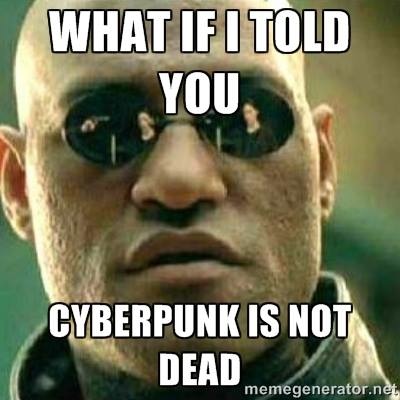Dystopian Cliche: Are The Arts Firing Literary Flare-Guns?
 Utopian speculative fiction is uncommon today, but there has been an artistic movement toward the dystopian. It is now a common fiction setting. Works of fantasy or horror may tend to reflect the observations of their authors living here on an Earth that holds dim prospects for most citizens. Our modern world shows disturbing trends. Science fiction seems particularly obsessed with the dystopian–to the point that the word cliché is being used in literary circles. This artistic preference actually endangers some speculative fiction artists who need to create a realistic setting.
Utopian speculative fiction is uncommon today, but there has been an artistic movement toward the dystopian. It is now a common fiction setting. Works of fantasy or horror may tend to reflect the observations of their authors living here on an Earth that holds dim prospects for most citizens. Our modern world shows disturbing trends. Science fiction seems particularly obsessed with the dystopian–to the point that the word cliché is being used in literary circles. This artistic preference actually endangers some speculative fiction artists who need to create a realistic setting.
Authors of terrestrial science fiction face a criticism that others do not: time’s passage. If a world is set a long time ago on a planet far, far away, the sci-fi artist can be as creative in world-building as any other speculative fiction writer. If, though, the tale includes Earth, the reader has an expectation of realism. It is a science fiction writer’s job to connect a reader’s perception of what is, to their own artistic vision of what will be.
 If a futuristic story is set next Wednesday, culture, art, and technology are simple to predict. Likewise, if a piece is set hundreds of years from now, time’s judgment won’t fall on the living author. Gene Roddenberry will be gone long before the future reveals the possible rise of a benevolent global government like the Federation. NASA is, however, working on a warp drive for interstellar travel, so Roddenberry may be judged for setting the technology too far in the future.
If a futuristic story is set next Wednesday, culture, art, and technology are simple to predict. Likewise, if a piece is set hundreds of years from now, time’s judgment won’t fall on the living author. Gene Roddenberry will be gone long before the future reveals the possible rise of a benevolent global government like the Federation. NASA is, however, working on a warp drive for interstellar travel, so Roddenberry may be judged for setting the technology too far in the future.
Technology is advancing quickly, and near-future science fiction stands in the cross hairs of time’s judgment. Orwell’s 1984 has been widely criticized for its use of pneumatic tubes and slips of paper to move information rather than accurately predicting the computer age. Conversely, the streets of Philip K. Dick’s Do Androids Dream Electric Sheep (Blade Runner), feature flat-screen billboards and voice-recognition software; critics praise his accuracy.
 Cyberpunk is science fiction’s popular near-future sub-genre. Wikipedia once defined cyberpunk as punk hackers and misfits (who had fallen or been pushed into society’s cracks), using bionic technologies against an unjust monolithic greed-based system of huge multinational corporations that bribed whole governments, and boasted security forces stronger than most armies.
Cyberpunk is science fiction’s popular near-future sub-genre. Wikipedia once defined cyberpunk as punk hackers and misfits (who had fallen or been pushed into society’s cracks), using bionic technologies against an unjust monolithic greed-based system of huge multinational corporations that bribed whole governments, and boasted security forces stronger than most armies.
Since dystopian fiction has been called cliché, cyberpunk’s Wikipedia definition has changed, and works no longer need to be dystopian. The challenge for the artist creating such an optimistic near-future piece is connecting most readers’ perceptions of the world around them to a positive vision of the world their children and grandchildren will inherit. Feel free to Google the following claims . . .
- The US economy has yet to recover from the 2008 collapse. Good jobs were lost, a huge number of unemployed are no longer counted as unemployed and the jobs that have been added since 2008 are low-paying, part-time, and offering no, or poor, benefits. Factories that employed parents and grandparents are still moving overseas, where workers don’t enjoy 40-hour work weeks, overtime, or a Labor Day paid vacation. Saving labor cost is profitable for shareholders. The stock market is robust as the rich get richer. The US national debt boggles the mind, and the effects of the Federal Reserve’s quantitative easing policy have polluted the bond market with the same bad debt that caused the 2008 bailout. Meanwhile, China seeks to replace the US Dollar with the Yuan as the international currency.
- Insider trading is legal in congress, and most who serve are worth seven figures before they leave by putting lobbyists’ needs over we-the-people’s. Ninety-five percent of political races are won by the candidate who raised the most money: the candidate who is bought. That is usually the incumbent, who has experience rubbing the elbows that lobbyists need rubbed. Is it any surprise Forbes featured an article titled: “The Four Companies That Control the 147 Companies That Own Everything”? With wealth comes power. Karen Hudes, a Yale Law School graduate and whistleblower who worked for twenty years at the World Bank, claims these mega-corporations of global elites control not just presidents, but governments.
- Globally, the oceans are dying. Life in coastal waters has been rapidly declining for decades, and coral reef habitats have drastically shrunk. Coastal waters respond well when clean-up measures are taken, but governments are not taking them. Creatures that eat jellyfish are found with stomachs clogged by plastic shopping bags, which look like jellyfish in the water. In the mighty Pacific Ocean, the Fukishima disaster is poisoning life. People crossing the Pacific in sailboats report a near loss of surface life, a recently active habitat. The University of Alaska detected the arrival of Fukishima’s radiation in coastal waters, and it measured at Cold War levels. The radiation, which has been leaking in over 300 tons of seawater a day since the disaster occurred, may not disperse evenly in water. A patch riding the northern Pacific current could be a massive health hazard, not just in Japan, but along the entire North American coast.
- Since the Supreme Court’s Citizen’s United decision, corporations are now considered persons under the law. The Supremes also say money is free speech. Some corporations, like Goldman Sachs and Monsanto, have revolving doors between their own executives and government appointee positions—that oversee the industry in which their company competes. The golden rule says those with the gold make the rules. Greed, one of the seven deadly sins, is called profit, is idolized, and drives the global market; what could possibly go wrong?
- At the current rate of deforestation, old growth rainforest will be gone by 2050. At current rates of poaching, the elephant will become extinct in twelve years. Current rates are important, because they’ve not changed in recent history. Everyone assumes that government, or someone else, will be proper stewards of Eden. Meanwhile, nothing changes. Business-as-usual is tolerated. History shows that humanity doesn’t change unless it must. We have to consider the words of Albert Einstein when considering current rates of decline: “Insanity is doing the same thing, over and over again, but expecting different results.”
It is easy to see how so many have a dark view of the near future, and why artists are drawn to the dystopian. Could it be that the price we have paid for our technology is upon us, we don’t realize it, and the arts are warning us? The rest of cyberpunk is reality; will a twisted fate for society also be shown by time’s passage?
Cyberpunk happens in laboratories every day. One can buy brain-wave computer input devices. Science fiction now has a post-cyberpunk sub-genre. Even cyberpunk’s predicted punks are now reality: Anonymous. The resistance to Big Brother is thankfully here. In 2012, Anon was named as one of Time Magazine’s top 100 most influential people of the year.
It is no surprise that the most creative genre, speculative fiction, has gone dystopian. In striving to paint a realistic picture, artists use colors from the world they know. In trying to create a believable universe, writers of near-future sci-fi are trapped by literary flaw: the cliché. Perhaps time’s passage will doom near-future sub-genres, as optimism eludes artists in the fallen world.
– – – – –
 Frank Creed is a housecatter, end-times cyberpunk novelist, and founder of the Lost Genre Guild for the promotion of Christian speculative fiction.
Frank Creed is a housecatter, end-times cyberpunk novelist, and founder of the Lost Genre Guild for the promotion of Christian speculative fiction.
Read Frank’s full bio at Splashdown Books. Learn more about his work at his website and blog. Friend him on Facebook and follow him on Twitter









































The more I learn in environmental science, the more depressed I get. Seriously, it seems like the world is running out of everything and none of the solutions are economically or socially viable. Maybe that’s why I read very little dystopia or cyberpunk–projections are drab enough.
Which is exactly what you would expect from a groaning world (Rom. 8), suffering because sinful man has subjected it to sin. However, the “environmental science” that insinuates either that all hope is lost or that man, through the right combination of political solutions and micromanaging mega-corporate regulation, can save the Earth, is not nearly “science” as much as religion in a white lab coat.
I’ll recycle, conserve, all that good stuff, not to “save the Earth,” but only to shave a few precious nanoseconds off the final refining burn/resurrection process that Christ will accomplish on planet Earth when He returns (2 Peter 3).
I can’t help but agree with the downbeat view of the future, but my worry is that some of the cyberpunk dystopias seem to offer nothing in place of a society divided between the Lords in their electronic castles and the peasants living in a mindless mess of mafia gang wars fighting each other rather than opposing the perpetual oppression.
I think there are ways out, but we need to find how to attack the roots of the disease, not just the symptoms (or we are no better than the politicians who gain office by an auction every 5 or 4 or whatever years of promises they know they cannot keep).
In UK there is a Freedom of Information Act. I’m sure the Labour party didn’t realise what they were doing when they passed it, but it gives power to the people to find out what is going on, and it works.
A writer’s job is not just to point out the problems, we should be pointing out the answers as well, and speculative fiction is the right place to do it. Freedom of Information is one step that way. We need to go further.
Obviously Orwell was wrong in not forseeing a computerised society. Does that matter? What is more important is his message, that the best of movements (Orwell was a Socialist) can be usurped and corrupted into a tyrrany.
My criticism is that I only wish he had offered some hope for the future.